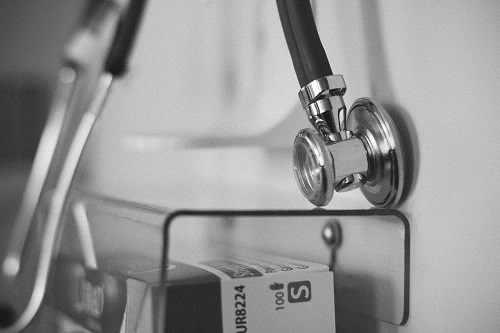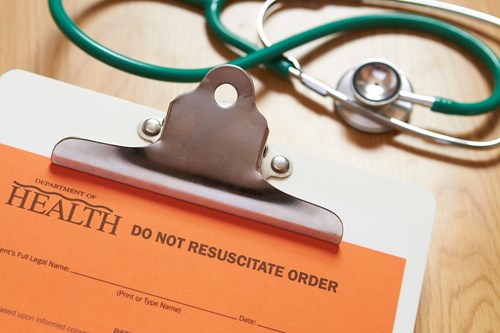Dr Samuel Bourke, University of Birmingham Graduate and British army doctor, describes his experience of becoming a Foundation Year 1 (FY1) doctor and shares the lessons he has learned.
Passed Finals? Got through the PSA (Prescribing Safety Assessment)? Had a whale of a time on your elective? Now it’s time to start work as a Foundation Doctor.
You’ve been slaving away for the last 5 or 6 years, so surely you’ll be ready for the big first day? The truth is that there are actually lots of things that Medical School will not prepare you for, but there are some things that you can do to help you be in the best possible position for your first day. Here are a collection of things that you can do to help you out in advance, as well as some useful tips that I wish I would have known before I started.

1. Getting information from the Foundation Doctor you will be following is essential
For those of you who decide that you want to stick around in the same city where you study, you’ll probably get the opportunity to undertake an Assistantship in the rotation that you’ll be starting on. This will be a fantastic opportunity to get to know some of the intricacies of the job itself, as well as a chance to get to meet new colleagues and various members of the medical team. For most people, however, you’re likely only to get a one week period of “shadowing” before the big day.
This week-long period will often be full of introductory lectures, clinical skills sessions, computer systems inductions and various other commitments that ultimately mean that you get very little time on the wards. Try to take as much time as possible to pick the brains of the FY1 that is currently on your job when you can – even though the formal departmental inductions are full of useful information, getting information from the Foundation Doctor you will be following is essential.
2. Master the dreaded switchboard
Everything seems to take so long when you start work as you adjust to your new environment. Your list of jobs can feel overwhelming, and frequently you will spend large chunks of time sitting whilst on the phone listening to the mind-numbing automated music whilst waiting for the switchboard. Although this is sometimes essential, try to keep a log of the important direct numbers to minimise wasted time. Eventually, you’ll tragically be able to remember the majority of these off the top of your head…
Most hospitals use a fantastic application called
Induction to help get around this problem. It is a free app, available on both on iPhone and Android, that acts as a store for all of the direct numbers throughout your respective hospital. It even stores mobile numbers for some of the specialities in the hospital, and also allows you to add numbers in that you think would be useful. If your hospital is on the platform, then I would absolutely recommend it.
3. Map Out Equipment and store cupboards
Sometimes it can feel like equipment for cannulas/phlebotomy are deliberately stored all over the place just to make a Junior Doctor’s life more miserable. While this may not actually be the case, finding out where all of the equipment is stored, and the relevant codes to the rooms before you start, is incredibly useful. If you can even push for your ward to create a “Junior Doctors trolley” (now in use at my hospital), then even better. It will save you more time than you could possibly imagine.
4. Lists, lists, and more lists
Ward rounds, and especially surgical ward rounds, can often fly by. You’ll be trying to write everything relevant down, whilst also keeping a comprehensive list of jobs that need doing once the ward round finishes. Some teams will have a handover sheet that will allow you to write down jobs that need doing which is useful, but others won’t. Having a methodical system to write down jobs, knowing which are urgent/higher priority, and having a way of ticking them off when they are either completely done or need chasing is key. There is no one definitive way to do this, but settling into a system that works for you is a good idea.
Scraps of paper with jobs lists can often be a bit of a nightmare, too. I resorted to using a clipboard/jobs box that I take on the ward round to help keep things in order. It’s not the most trendy accessory, but it’s super functional. You can also have a store of useful documents on you during the ward round, too (imaging and blood request forms etc).
5. Master Communication Skills & Teamwork
It may sound particularly clichéd, but going out of your way to get to know the nurses and other healthcare professionals on your ward can go a long way. Remember that they will have been there a lot longer than you have, they know how the system works and will be a huge source of knowledge and experience.
6. Getting hangry?
Sometimes it can feel like your list of jobs can be overwhelming and the temptation to skip lunch to crack on with things can be high. We’ve all been there, but ultimately this is only going to mean that you’re not functioning effectively. There are obviously exceptions (acutely unwell patients being the obvious one), but taking time to get food/caffeine and a short break during the day can actually help efficiency.
7. Learn how to Write Discharge Summaries
An essential skill for an FY1 is writing discharge summaries. A discharge summary is a clinical report that is prepared at the end of a patient's stay in a hospital or after a series of treatments. This is an essential skill as this document will be the primary format of communication between those who have cared for the patient in the hospital and the aftercare provider.
A poorly written discharge summary has the potential to jeopardise a patient’s aftercare and may lead to hospital readmission for a patient. The best advice is to keep your summaries simple. Focus on the key events (For example, history and examination findings, investigations, diagnoses, complications, procedures, and discharge advice). It’s also valuable to include discharge medications as they may need to be ordered from a pharmacy. However, avoid copying the entire scan report and giving GP tasks that are urgent as it can take longer than 2 weeks for this information to reach the GP.
Finally, ensure you get feedback on your discharge summaries to learn how to improve your discharge summaries as well as use this feedback as a CBD for your e-portfolio.
The transition between student to doctor can be daunting, but preparing effectively for the first day can make a big difference.
Best of luck everyone!

Dr Samuel Bourke, University of Birmingham Graduate and British army doctor





